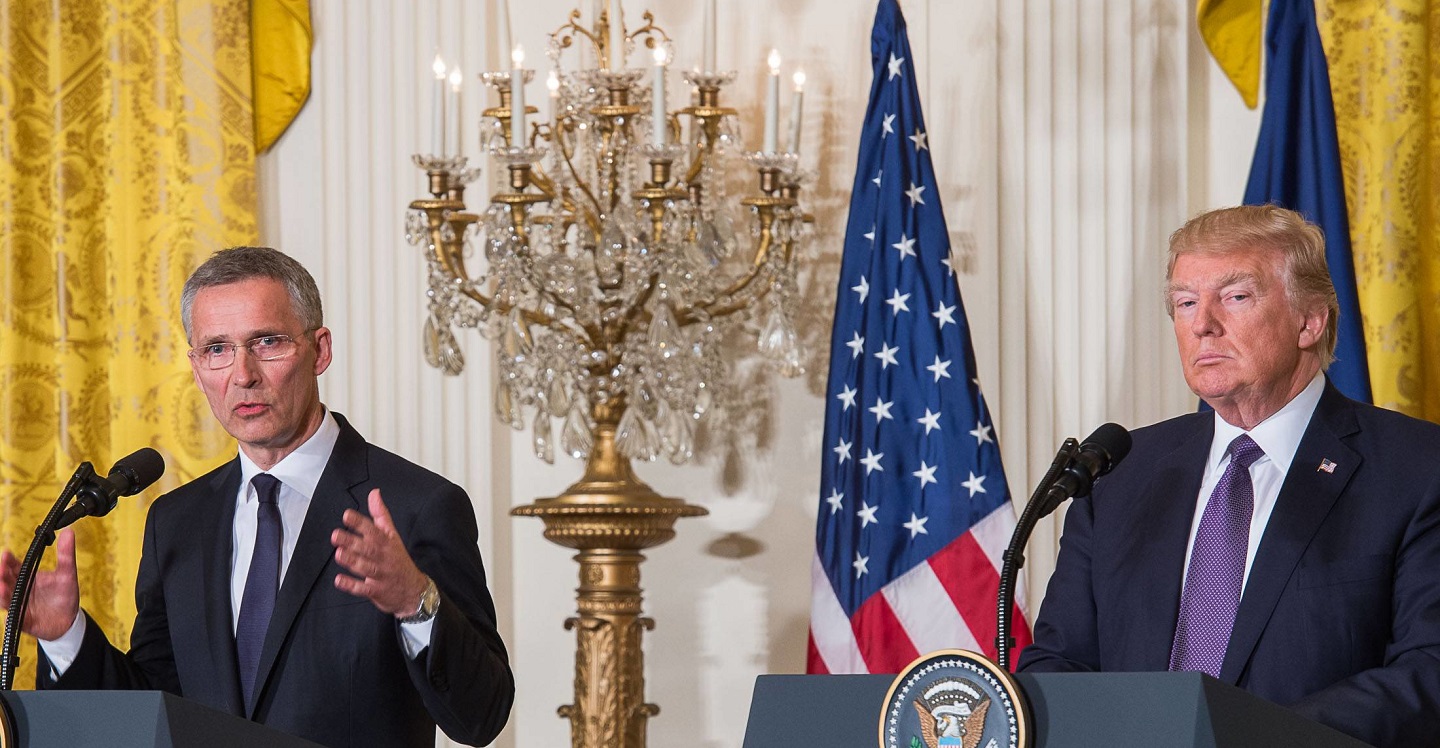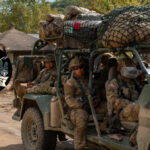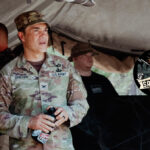
EDITOR’S NOTE: In light of the current situation on the Ukraine/Russia border the WAR ROOM Editorial Team thought it was a good time to revisit an incredibly well informed discussion of NATO. We’re re-releasing this enlightening discussion between Stanley Sloan and Ron Granieri. And while we’re at it we’d be remiss if we didn’t point to our NATO Archive where you can find another sixteen articles and episodes on different aspects of NATO.
Burden sharing has been an issue in the alliance from the very beginning, from the drafting of the treaty when members of the U.S. Congress wanted to make sure that the Europeans were going to be able to hold up their end of the deal
In discussing NATO and our European allies, burden sharing has been a hot topic for the last several years under the current administration. But the fact of the matter is that burden sharing has been an area of concern since the inception of NATO and throughout it’s development. A BETTER PEACE welcomes Stanley Sloan to the studio to discuss the current state of NATO and a way ahead for the organization. Sloan, a subject matter expert on NATO and transatlantic relations, joins podcast host Ron Granieri to examine the history of U.S./NATO relations, the growth in membership and the current and future implications for all of its member nations as well as Russia.
Podcast: Download
Stanley Sloan is a Visiting Scholar in Political Science at Middlebury College, a Non-resident Senior Fellow in the Scowcroft Center of the Atlantic Council of the United States, and an Associate Fellow at the Austrian Institute for European and Security Policy and is the founding Director of the Atlantic Community Initiative.
Ron Granieri is an Associate Professor of History at the U.S. Army War College and the Editor of A BETTER PEACE. The views expressed in this presentation are those of the speakers and do not necessarily reflect those of the U.S. Army War College, U.S. Army, or Department of Defense.
Photo Description: Press conference by President Donald Trump and NATO Secretary General Jens Stoltenberg. April 12 2017
Photo Credit: NATO Press Office





Q1: What has challenged the Transatlantic Alliance most in recent years?
If we answer: 9/11, Russia, the Brexit and the election of the Donald Trump (these matters, arguably, being the worst things the Atlantic Alliance has had to deal with in recent years?), then does this not next beg the question:
Q2: What is the (common?) matter that caused 9/11, our problems with Russia, the Brexit and the election of Donald Trump?
As to this latter question, might we answer: The common matter that caused 9/11, our problems with Russia, the Brexit and the election of Donald Trump, this was the U.S./the West’s post-Cold War foreign and domestic policies, that were focused on transforming the states and societies of the world (to include the U.S./the West’s own such states and societies) so that same might be made to better interact with, better provide for and better benefit from such things as capitalism, globalization and the global economy?
(Thus, the reactionary “resistance to unwanted change”/”reversal of unwanted change” warfare of OBL and those of his ilk, Putin, the Brexiteers and Trump and his followers?)
Based on the thought that I have provided above, might we say that such things as “burden sharing” — from a NATO and/or from an Atlantic Alliance perspective — this must be viewed from a much larger perspective than simply that of “military expenditures?”
Rather, based on the information that I have provided above, might we say that any “burden sharing” analysis must include all “costs” — and indeed all “burdens” (for example, the political burdens) — related to the Alliance’s grand strategy — of transforming both their own states and societies — and the states and societies of the rest of the world; this, so that same might be made to better interact with, better provide for and better benefit from such things as capitalism, globalization and the global economy?
Q: Want an example of this such much larger “cost”/this such much larger “burden sharing?”
A: The requirement to stand against those individuals and groups — both within one’s own country and in the other states and societies of the world also — who would seek to “resist” — and/or who would seek to “reverse” — such political, economic, social and/or value changes as are required; this, so as to provide for the Alliance’s and NATO’s worldwide “transformation” goal noted above.
(From this such perspective, of course, and based on what we are seeing today, a proper understanding of “the burden,” thus, must include worldwide “civil wars” — between [a] those who would profit from [and who, thus, would embrace] such state and societal changes as I have described above and [b] those who would lose status, power, influence and control (and who, thus, would reject) such state and societal changes.)
As I indicated in the final paragraph of my comment immediately above, one example of the rather scary costs/burdens of the Alliance’s market-based “global change” grand strategy, this is the worldwide civil wars that have, thus as a result, ensued, between (a) those who would profit from such market-based changes and (b) those who would lose status, power, influence and control by way of such changes.
“In this new world disorder, the power of identity politics can no longer be denied. Western elites believed that in the twenty-first century, cosmopolitanism and globalism would triumph over atavism and tribal loyalties. They failed to understand the deep roots of identity politics in the human psyche and the necessity for those roots to find political expression in both foreign and domestic policy arenas. And they failed to understand that the very forces of economic and social development that cosmopolitanism and globalization fostered would generate turbulence and eventually resistance, as ‘Gemeinschaft’ (community) fought back against the onrushing ‘Gesellschaft’ (market society), in the classic terms sociologists favored a century ago.”
(See the Mar-Apr 2017 edition of “Foreign Affairs” and, therein, the article by Walter Russell Mead entitled “The Jacksonian Revolt: American Populism and the Liberal Order.”)
Question:
If NATO’s military forces (much like their nations as a whole?) have come to see their ultimate loyalties (and thus their obedience to certain orders, for example, the “masking” and other such orders given by their governments during the pandemic) more from the perspective of “market society” versus “community,”
Then is not THIS such exceptionally dangerous and new precedent, also and accordingly, a proper matter of “cost” and “burden” that we must stand up to and address; this, when discussing such things as “burden-sharing” by the Atlantic Alliance?
(I can see it now: Orders given to NATO military personnel by their civilian and/or military leaders will first have to be processed, by these military personnel, through their “political persuasion” filters and, thereafter, only obeyed if such orders are not considered to be, for example, “Liberal” orders or “Conservative” orders. Military personnel who are aligned more with “market society” or with “community,” when given various orders that do not suit their political beliefs, will then apply for a “political persuasion” exemption — much as they do today re: “religious exemptions” — so as to not have to obey orders which they believe might violate their [a] political beliefs and, thus, [b] their ultimate allegiance and loyalty.)